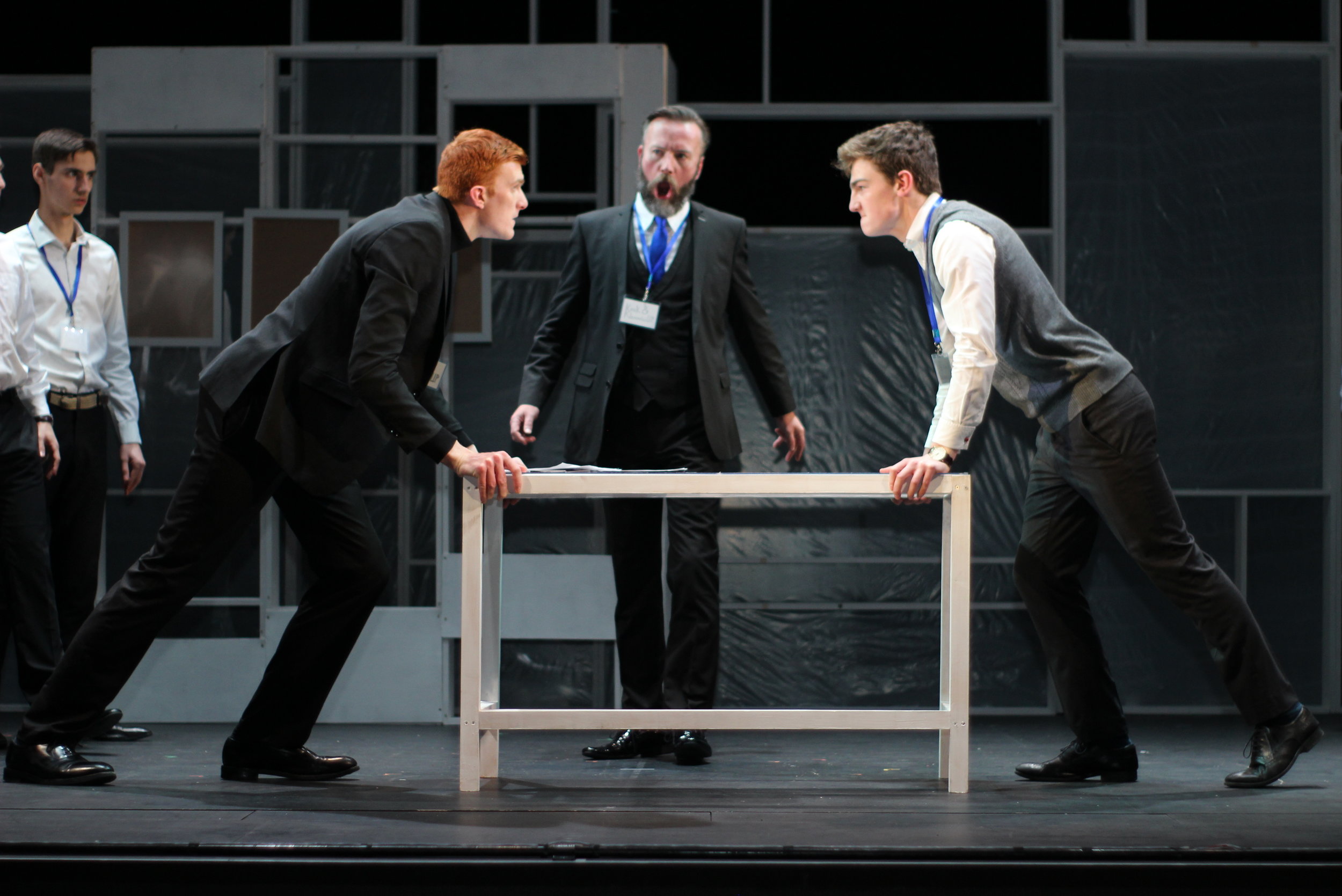UCL Shows Review: UCOpera Presents Libuše
Jennifer Osei-Mensah reviews the UK staged premiere of Smetana’s Libuše, performed by UCOpera at the Bloomsbury Theatre. Warning: spoilers ahead!
UCOpera have a habit of staging premiers and performing little-known works, and Smetana’s Libuše is no exception. The plot of the opera, written in 1872, is based on folklore: a nationalistic portrayal of the 8th century queen Libuše, staged for the first time in the UK. First let it be said, immense props to the chorus and student leads for pulling off singing in Czech for over two hours.
The most impressive part of the production was certainly the set. The curtain went up to reveal a minimalistic skyline as a gorgeous backdrop to the office setting – Libuše is reimagined at her desk as the CEO of Krok & Klenovici LLP, Krasava as her underling who stumbles in from a big night out. The libretto is cleverly tied into the modern setting through props, with the use of an iPad as the ‘tablet of the law’, and a jug of water as the ‘purifying water’ at her feet, during the meeting to resolve the drama between the two brothers, Chrudoš and St’áhlav. Lanyards are used to represent belonging – Chrudoš rips his off with a dramatic flourish when he rejects Libuše’s authority, and Libuše presents it in the final act as a sign of forgiveness. The lyrics being so anchored in their original setting meant the audience was constantly aware of it being a reimagining, but this reimagining was sensitively and cleverly done.
That said, the opera itself is lacking in plot to say the least. The main conflicts of the drama, such as the two brothers’ reconciliation, happen with no musical acknowledgement, but director Cecilia Stinton gives their resolution a subtle nod on stage as they seem to pore over some contract together. We never see Libuše and Premysl’s love story unfold, but rather the announcement of their engagement. They share a few delicate kisses, but their love is more understated than passionate.
Maybe the acoustics of the Bloomsbury aren’t ideal for opera, as singers were accompanied un-mic’ed by a full orchestra, but it was a shame that the beautiful voices of the student leads sometimes didn’t carry over the instruments. One impressive exception was William Bennet, whose voice carried clearly out into the auditorium.
The visual representation of Premysl’s country origins was beautiful – colourful garlands were hung on the white office structure, and the chorus executed some impressive quick changes between office wear and seventies-inspired clothes as the 8th century Czech countryside was reimagined as a commune. There was a clear distinction in movement, but the dances weren’t really sold. The stage was unfortunately cramped with the vast chorus, some of which looked more than slightly uncomfortable – with some exceptions of very smiley, engaged dancers.
I think a lot of the publicity for the opera has dwelt on it having a powerful female lead – and although Kirstin Sharpin was without a doubt the star of the show in terms of her stunning vocals, the character of Libuše left us wanting in terms of a strong heroine. She must marry to legitimise her rule, and celebrates that she can chooseher husband – hurrah! But then again, this was the 8th century. There’s only so progressive one could be.
All of this said, UCOpera is consistent in proving how impressive student theatre can be. Although the leads and conductor are professionals, Libuše was directed, produced, designed and choreographed by current students. The majority-student orchestra cannot be faulted for their professional and seamless performance, and the chorus sung consistently beautifully. While the plot of Libuše perhaps does not give them their best chance at flaunting their acting skills, the overall production value was exceptionally high for a Bloomsbury production, and a credit to UCL.
Libuše will performed Friday 22nd and Saturday 23rd March.



